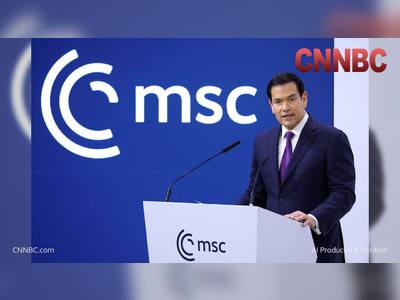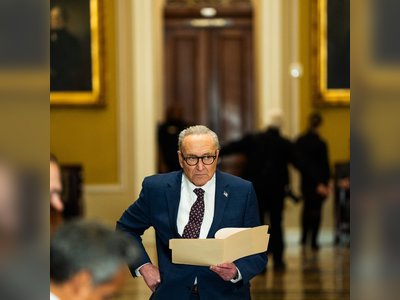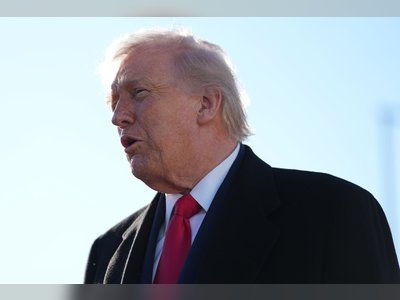
UK and India Finalize Landmark Trade Deal After Extended Negotiations
The agreement aims to enhance economic ties, cut tariffs, and is expected to significantly benefit both nations' economies by 2040.
The United Kingdom and India have concluded a significant trade agreement following more than three years of negotiations.
Announced on Tuesday, the deal is projected to reduce tariffs and add £4.8 billion annually to the UK economy by 2040. This agreement is viewed as one of the most substantial achievements related to the UK’s post-Brexit trade strategy.
The trade deal is anticipated to provide considerable advantages to the UK's automotive and alcohol industries, which have faced challenges resulting from recent tariffs imposed by the United States.
UK Labour leader Keir Starmer characterized the agreement as a 'landmark deal' that promises to stimulate economic growth for British businesses.
A contentious aspect of the deal involves the exemption from National Insurance Contributions (NICs) for Indian workers temporarily assigned to the UK, a decision criticized by some UK officials.
Kemi Badenoch, the Conservative leader, described the exemption as a 'two-tier taxes' system.
This exemption was a fundamental demand from India during negotiations and was noted as a major sticking point until recently.
Critics within the Labour party have also expressed concerns about the exemption, especially in light of recent NIC increases for UK employers.
The agreement is reciprocal; it will also apply to British workers stationed in India through their companies.
Jonathan Reynolds, the Business and Trade Secretary, defended the policy indicating that it is intended to eliminate dual social security payments for inter-company transfers.
While the opposition Labour party raised concerns about the implications of the deal for migration policies, the government maintains that the deal is consistent with existing immigration regulations and aids in facilitating professional visas for select sectors, allowing for 1,800 annual visas for Indian chefs, musicians, and yogis.
Tariff reductions are a key feature of the agreement, with India committing to halving tariffs on British whisky and gin from 150% to 75%, with a further reduction to 40% after ten years.
Tariffs on British automobiles are set to decrease significantly from approximately 110% to 10%.
India will also reduce tariffs on 90% of British product lines, which includes a wide range of goods from cosmetics to medical devices.
The agreement’s enactment is estimated to result in £400 million in tariff savings from its commencement based on 2022 figures.
British tariffs on Indian textiles and food products are expected to be lowered, enhancing consumer access to diverse products.
Ongoing discussions concerning a bilateral investment treaty, which would protect investments between the two nations, have not yet concluded, resulting in the exclusion of financial and legal services from the current agreement.
This aspect has been classified as a 'missed opportunity' by industry representatives.
Negotiations for the trade deal intensified recently, culminating in a meeting between Reynolds and Indian Minister of Commerce and Industry Piyush Goyal in London.
The agreement includes considerations around customs reforms, anti-corruption measures, gender equality, and labor standards.
Modi expressed optimism regarding the deal's potential benefits for both nations through a social media announcement.
The finalization of this trade deal comes as the largest and most economically significant trade agreement for the UK since leaving the European Union, reflecting the efforts of multiple UK governments over recent years.
Previous prime ministers had set deadlines for securing the deal but failed to achieve it until now.
Industry leaders, including Mark Kent from the Scotch Whisky Association, hailed the deal as a critical opportunity for expanding exports, particularly to India, which is recognized as the largest market for whisky globally.
The deal is expected to markedly increase Scotch whisky exports and generate significant employment in the UK. The Confederation of Indian Industry also acknowledged the deal's importance in navigating rising trade tensions globally and stabilizing the economies of both nations.
Announced on Tuesday, the deal is projected to reduce tariffs and add £4.8 billion annually to the UK economy by 2040. This agreement is viewed as one of the most substantial achievements related to the UK’s post-Brexit trade strategy.
The trade deal is anticipated to provide considerable advantages to the UK's automotive and alcohol industries, which have faced challenges resulting from recent tariffs imposed by the United States.
UK Labour leader Keir Starmer characterized the agreement as a 'landmark deal' that promises to stimulate economic growth for British businesses.
A contentious aspect of the deal involves the exemption from National Insurance Contributions (NICs) for Indian workers temporarily assigned to the UK, a decision criticized by some UK officials.
Kemi Badenoch, the Conservative leader, described the exemption as a 'two-tier taxes' system.
This exemption was a fundamental demand from India during negotiations and was noted as a major sticking point until recently.
Critics within the Labour party have also expressed concerns about the exemption, especially in light of recent NIC increases for UK employers.
The agreement is reciprocal; it will also apply to British workers stationed in India through their companies.
Jonathan Reynolds, the Business and Trade Secretary, defended the policy indicating that it is intended to eliminate dual social security payments for inter-company transfers.
While the opposition Labour party raised concerns about the implications of the deal for migration policies, the government maintains that the deal is consistent with existing immigration regulations and aids in facilitating professional visas for select sectors, allowing for 1,800 annual visas for Indian chefs, musicians, and yogis.
Tariff reductions are a key feature of the agreement, with India committing to halving tariffs on British whisky and gin from 150% to 75%, with a further reduction to 40% after ten years.
Tariffs on British automobiles are set to decrease significantly from approximately 110% to 10%.
India will also reduce tariffs on 90% of British product lines, which includes a wide range of goods from cosmetics to medical devices.
The agreement’s enactment is estimated to result in £400 million in tariff savings from its commencement based on 2022 figures.
British tariffs on Indian textiles and food products are expected to be lowered, enhancing consumer access to diverse products.
Ongoing discussions concerning a bilateral investment treaty, which would protect investments between the two nations, have not yet concluded, resulting in the exclusion of financial and legal services from the current agreement.
This aspect has been classified as a 'missed opportunity' by industry representatives.
Negotiations for the trade deal intensified recently, culminating in a meeting between Reynolds and Indian Minister of Commerce and Industry Piyush Goyal in London.
The agreement includes considerations around customs reforms, anti-corruption measures, gender equality, and labor standards.
Modi expressed optimism regarding the deal's potential benefits for both nations through a social media announcement.
The finalization of this trade deal comes as the largest and most economically significant trade agreement for the UK since leaving the European Union, reflecting the efforts of multiple UK governments over recent years.
Previous prime ministers had set deadlines for securing the deal but failed to achieve it until now.
Industry leaders, including Mark Kent from the Scotch Whisky Association, hailed the deal as a critical opportunity for expanding exports, particularly to India, which is recognized as the largest market for whisky globally.
The deal is expected to markedly increase Scotch whisky exports and generate significant employment in the UK. The Confederation of Indian Industry also acknowledged the deal's importance in navigating rising trade tensions globally and stabilizing the economies of both nations.












